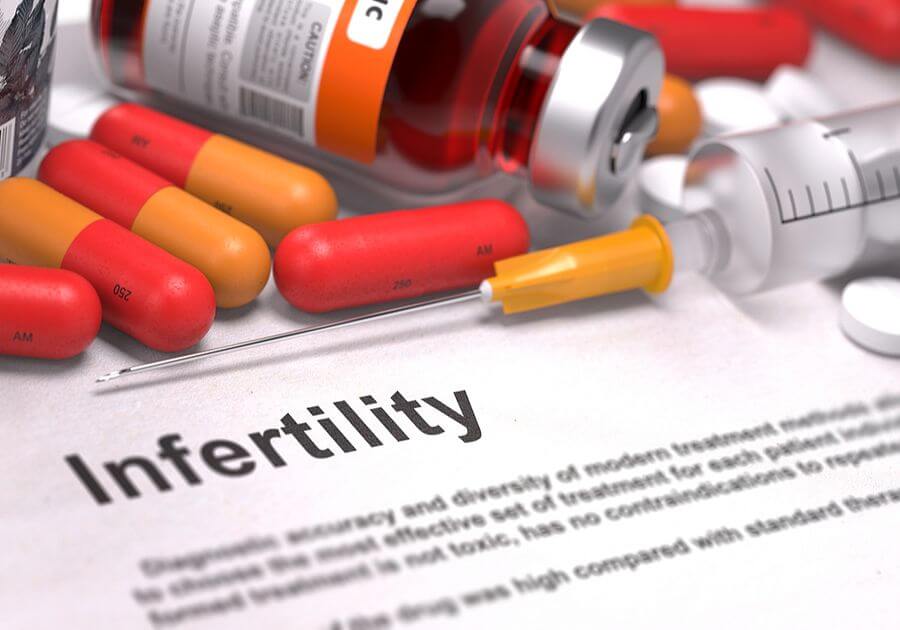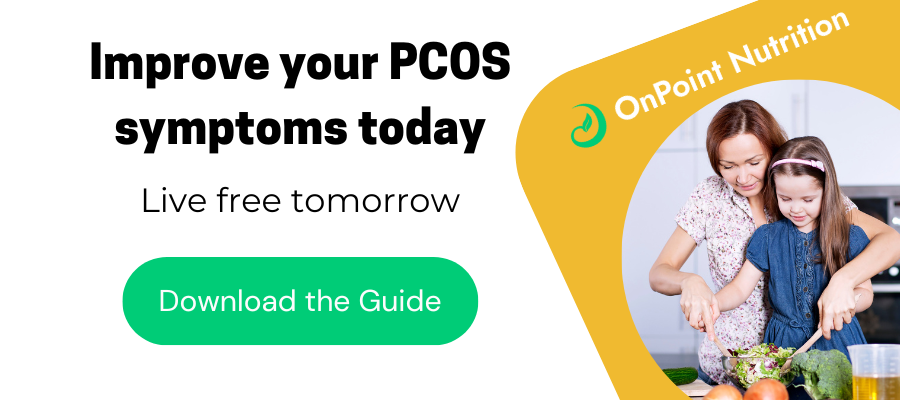
If you have PCOS, I'm sure you know that there is a ton of information on the internet about your condition. It can be tough to decipher what information is credible and find answers to all of your questions. Here, we break down the 5 things every woman with PCOS should know so you can skip internet diving and find the answers you're looking for!
- What is PCOS and how did I get it?PCOS is a hormonal condition that affects women of reproductive age. All women produce a small amount of androgens, which are male hormones, but with PCOS the ovaries produce an abnormally large amount. Androgenous hormones include testosterone, androstenedione, and DHEA-S. The over-production of these hormones is primarily responsible for the symptoms that accompany PCOS, such as irregular periods, hirutism, acne, insulin resistance, and weight gain.While the exact cause of PCOS is still unknown, researchers suspect that genetics play a role in your susceptibility to PCOS and hyperandrogenism. That being said, just because you have a higher genetic susceptibility, doesn't mean you will definitely develop PCOS. Genes can be activated by your environment, so it's important to take into consideration that the root cause of your PCOS could be treated by modifying your environment. The key is to identify which factors are contributing to your specific PCOS.

- Are there different types of PCOS?Yes, there are different types of PCOS. Let's take a closer look at each.Insulin-resistant PCOS: Insulin-resistant PCOS is the most common type of PCOS there is. This type of PCOS is very much related to dietary factors. With this type, the body is producing insulin in response to high levels of glucose in the blood but is not able to utilize it properly. This results in high levels of insulin in the blood, which causes greater production of androgens, or male hormones. This type is often accompanied by weight gain or inability to lose weight.Pill-Induced PCOS: This is the second most common type of PCOS and it develops due to birth-control pills that suppress ovulation. Most of the time, this type of PCOS is temporary and can be resolved by switching birth control methods. Inflammatory PCOS: Inflammatory PCOS is often environmental and can be resolved by decreasing the sources of inflammation. Often times, the inflammation is stress, environmental toxin, or diet-induced. The good news is, through stress management techniques and diet modification, you can reverse your PCOS. Talk to your nutritionist or dietitian to see what foods may be causing your inflammation or check out our list of foods to eat and foods to avoid with PCOS.Hidden PCOS: This type of PCOS is caused by a separate condition and can easily be reversed once the other condition is addressed. Often times, hypothyroidism or certain vitamin or mineral deficiencies such as Vitamin D, Zinc, or Iodine are the root cause. Each of these conditions effects ovulation, causing PCOS to surface as well.


-
What are the cysts? Are they dangerous?
Despite the name Polycystic Ovarian Syndrome, not all women with PCOS actually get cysts on their ovaries. These cysts form due to lack of ovulation, and, contrary to popular belief, are not tumor-like or cancerous. These cysts are essentially egg follicles that were not released during ovulation. Research shows that only 25% of women with PCOS actually experience cysts as one of their symptoms. - Can PCOS affect my chances of getting pregnant?Definitely, which is why early diagnosis and treatment are so important. However, just because having PCOS makes getting pregnant for difficult, it doesn't mean that you won't get pregnant. In fact, PCOS is one of the most common, but treatable, reasons for infertility in women. For women with PCOS, hormonal imbalances may intefere with ovulation and if you don't ovulate, you can't get pregnant. The good news is, the better you manage your PCOS, the more likely you are to get pregnant. If you're concerned about your fertility, speak with your doctor about ways to increase ovulation or ways to track your ovulation to know your most fertile days.

- Can PCOS be cured?Unfortunately, there is no cure for PCOS, but you can decrease or eliminate your symptoms through lifestyle changes and medication. Many of the symptoms related to PCOS can be managed through dietary changes, frequent exercise, and weight loss. However, some of the other symptoms such as infertility, acne, and irregular periods may need medication to be managed. Your best bet with PCOS, just like many other conditions, is to get help from the experts! Consider working with a nutritionist or dietitian to help create an eating plan that works for you and consult your doctor to help manage the other symptoms that may require medication.

Kaitlyn Willwerth is a Registered Dietitian at OnPoint Nutrition. Kaitlyn's work focuses on providing individualized health and lifestyle coaching and, most importantly, support. She is a Certified LEAP Therapist and has also completed the Monash University 'Low FODMAP Diet for IBS' online training course for health professionals.




